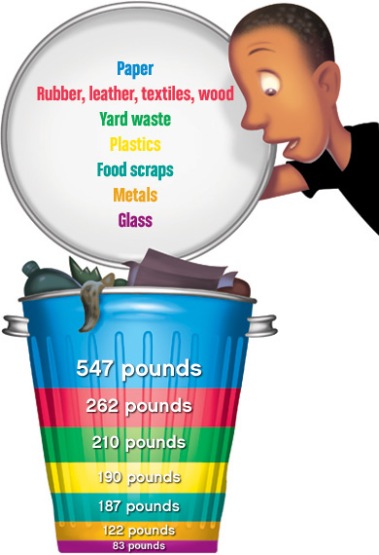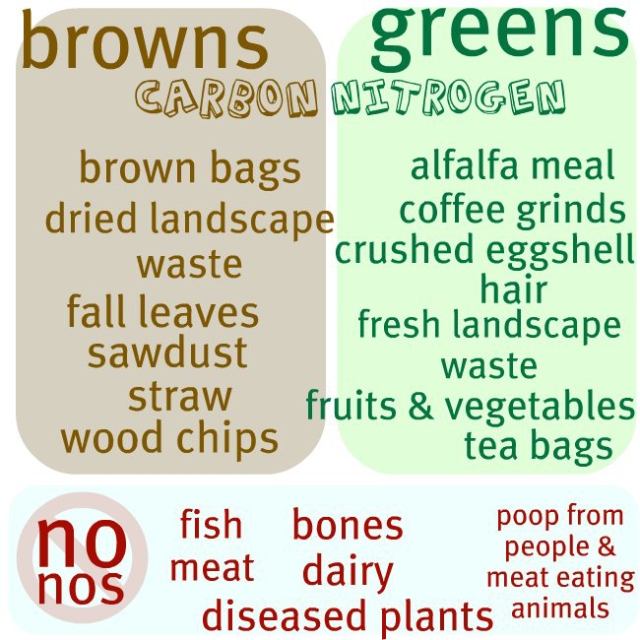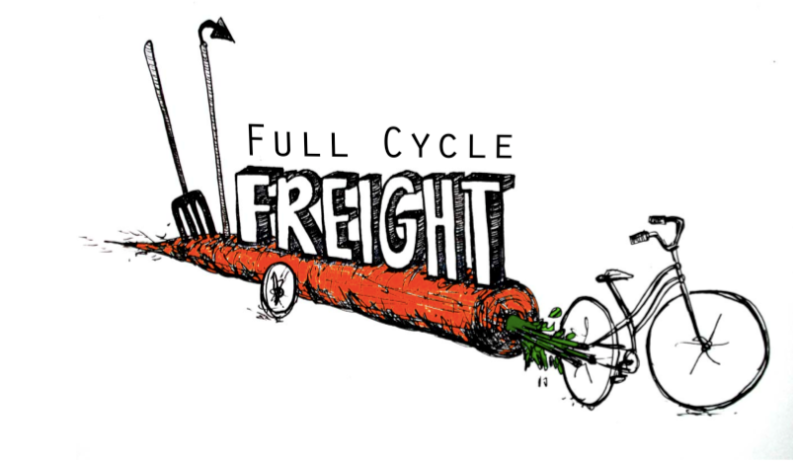My partner Emma and I did our project on the topic of composting and we related this topic to the University of Wisconsin-Madison campus. We wanted to look at the situation here on campus and in order to do so we began by researching the composting options that are present as of right now. Once we had knowledge of these programs, Emma and I decided that we would create a survey that we would give to both our lab and a number of other random people we knew. The main purpose of the survey was to measure the awareness level of students on the topic of composting in general as well as what composting options are available on campus. The questions that were presented on the survey are as follows:
1. Are you aware of whether there are any composting programs on the UW Madison campus?
2. Have you ever seen any locations where there are composting options on campus?
3. Do you know what composting is? What types of materials are compostable?
4. Do you know any benefits of composting? What are they?
5. Have you ever participated in composting?
6. If a composting option was made visible and easily accessible to students on campus, do you -think you would take advantage of the option and contribute? To what extent?
7. What would be the best place to post information about compostable items or composting systems?
8. What do you feel would be the best advertisement method? posters? flyers? something else?
The results:
50% of participants were freshmen
19% were sophomores
6% were juniors
25% were seniors
Question 1: Yes: 44% No: 56%
Question 2: Yes: 69% No: 31%
Question 3: Yes: 81% No: 19%
Answers provided for things that are compostable:
“coffee filters, most hydrocarbon materials”, “recyclables and food”, “food and flowers”, “food/organics”, “organic materials like fruit peels, eggshells”, “cardboard, food scraps, etc.”, “organic materials”, “eggshells, vegetable scraps, fruits”, “organic materials except dairy”, “food and other plant material except meat, dairy”
Question 4: Yes: 88% No: 12%
Answers provided for benefits of composting:
“less waste produced, ease of disposal, utilization for fertilizer”, “better environment”, “fewer landfills due to reusing food for soil enriching”, “less space taken up in landfills, use as fertilizer”, “it is a more efficient and safer way to eliminate waste and the compost that results can be used as soil”, “good to put back into gardens”, “makes nutrient rich soil”, “organic matter is good for soil/growing”, “less waste, free soil”
Question 5: Yes: 56% No: 44%
Question 6: Yes: 94% No: 6%
Question 7:
Answers provided for best place to post information:
“dorms”, “next to trash/recycling bins”, “Memorial Union”, “near garbage bins”, “unions, dorms, cafeterias”, “DNR?”, “university website”, “facebook”, “Memorial Union, Memorial Library, Library mall, State Street”, “bulletin boards across campus”, “dorm trash rooms, by garbage disposals at dining halls”, “email”
Question 8:
Answers for best advertisement method:
“flyers or email”, “posters with graphics complimented by text”, “dining halls’ TVs”, “info session”, “flyers on table, bigger bins that obstruct regular trash bins”, “emails or posts on websites”, “representatives around compost bins who can inform people on what to do, campus wide advertising mass email”, “chalking, flash mobs, writing editorials in campus newspaper, facebook page for it, etc.”
The results that we received were both expected and surprising to me depending on the question. About half of the people knew that there were options for composting at school so awareness could be a lot higher, but there were also a good number of people who have knowledge and experience with composting. With this information along with majority of people who answered yes to whether or not they would participate in composting if it were made accessible to them, it is obvious that a composting program has good potential here on campus. The only problem is that people need to be made aware of the programs that are already in place. Also, many people are already aware of what composting is and the ways in which it can be beneficial so education wouldn’t be the main concern in implementing a program. I think the main concern would actually be making people aware that this program even existed. People are willing to help the environment in ways such as participating in composting if they are given the opportunity and it isn’t too hard for them to do so.
Using the information that we received from our survey, Emma and I decided to create an informational poster that would create awareness on the topic of composting. Since many people answered that the best place to put the information on composting would be in dorms or near garbage and recycling bins we decided that we would post our finished product in the garbage rooms of the dorms on campus and possibly even in the dining halls near where students put their trays away. Here is a copy of the poster:
In the end, Emma and I would have liked to have done more raising awareness and less researching, but we hope that through the awareness that we were able to create, someone’s interest was sparked enough to where they will want to make a change as well. Since there are already programs for composting on campus it is very possible that sometime in the future a campus-wide composting program will be implemented. It is our hope that this will happen, anyways.




